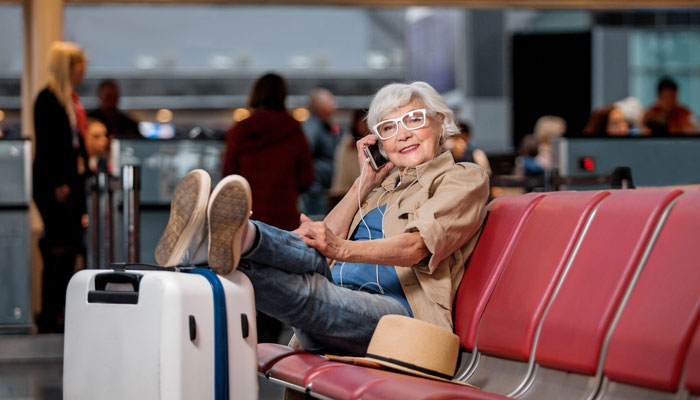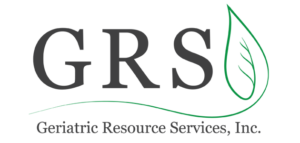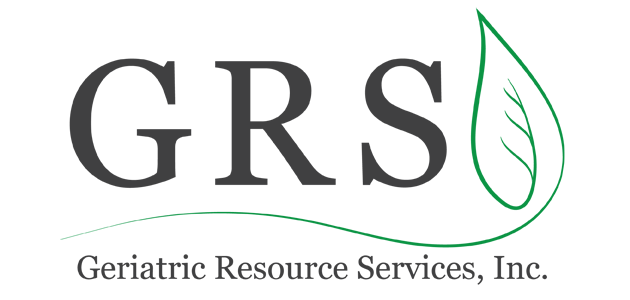Aging Well in the Upstate
Helpful tips for family caregivers
August/September 2018
Caring for an aging relative, you shoulder a lot! In this month’s newsletter we look at ways to give you a boost. Certainly, there’s the chemical boost of caffeine. A mixed blessing, it turns out. And one that older adults (seniors and middle-aged) are turning to in increasing numbers. Thinking about a vacation with your loved one? Or maybe a vacation when Mom or Dad go visit someone else and you get a break? Either way, we have some safety tips to forestall the most common vacation spoilers. Last, that frustrating stalemate when a relative says, “I don’t need help!” Our insights about privacy issues and issues of pride may help you jump over that logjam.
When you need an energy boost
 When caregiver fatigue strikes, many of us reach for caffeine. Whether it’s coffee, cola, chocolate, or an “energy shot” drink, the effects are immediate. Like a reliable friend, caffeine seems to help us keep going.
When caregiver fatigue strikes, many of us reach for caffeine. Whether it’s coffee, cola, chocolate, or an “energy shot” drink, the effects are immediate. Like a reliable friend, caffeine seems to help us keep going.
Pros and cons
Studies have shown many benefits from caffeine. It can enhance performance. It increases productivity and elevates mood. It may even reduce or delay Alzheimer’s and Parkinson’s diseases.
On the other hand, caffeine can be hard on the heart. It’s like giving your heart a stress test on a regular basis. It’s known to cause a rapid or irregular heartbeat and can contribute to high blood pressure. Insomnia and anxiety are also common side effects.
Too much of a good thing?
High-caffeine energy shot drinks are increasing in popularity, especially among older adults. Take caution. In a four-year time span, the number of adults going to the ER because of energy drink intake doubled. Among adults age 40 and older, the rate quadrupled! Although the numbers are small, clearly there is a trend. Symptoms ranged from palpitations and anxiety to actual heart attacks.
The Food and Drug Administration says that 400 mg of caffeine per day is likely safe. A 5 oz. cup of caffeinated coffee has about 100 mg. A can of cola about 50 mg. Energy drinks, by contrast, vary dramatically, having from 200 to 500 mg of caffeine.
If you want to quit
Caffeine can be addictive. Tapering off, or down, is easier than going cold turkey. One approach is to make your coffee or tea half decaf. Or switch to smaller servings or fewer drinks per day.
Another option is to respect your fatigue. Try to get enough sleep at night. And if life allows, consider a short nap midday. Listening to your body may be a wiser approach than reaching for a cup of joe or a high-impact energy shot.
Return to topSafe traveling for older adults
 If Mom or Dad has summer vacation plans, be aware that older bodies are more vulnerable to the stresses of travel.
If Mom or Dad has summer vacation plans, be aware that older bodies are more vulnerable to the stresses of travel.
Begin with a pretrip appointment with the doctor. Suggest a meeting with the physician 4–8 weeks ahead of the vacation. Ask the doctor to assess overall health for travel. Heart and lung issues are the primary culprits in terms of cutting a vacation short. Ask about precautions while traveling or things that can be done now to prepare.
Other medical issues
- Plan to bring extra pills in case travel home is delayed. Check to see if a prescription renewal is needed.
- Ask about the scheduling of doses when crossing time zones.
- Pack prescriptions in the carry-on in case luggage gets lost.
- Order oxygen for the flight. If your loved one has a lung condition, the airlines will require you to order oxygen from them. They need 1–2 weeks’ notice.
- Ask the airlines for help with a wheelchair if your loved one has trouble getting around the airport.
- Pack lightly and carry a wheeled suitcase to avoid back injuries.
Exercise during long seated trips. If drive time or flight time is more than four hours, your relative may be at risk of deep vein thrombosis. Although not common, this involves a clot that develops quite suddenly. It can result in a deadly embolism if it travels to the lungs. Cancer patients, overweight individuals, and people who have been recently injured or hospitalized are most at risk. Watch for painful pink or bluish hot areas in the thigh or abdomen.
Prevention involves seated exercises such as marching in place and “drawing circles” with the toes (while pointing and flexing to stretch the calf in all directions). Properly fitted medical compression socks may also help—just make sure they don’t bind at the knees. If possible, it is helpful to stand up and move about every hour or so.
Return to top"I don't need help" – Part 3
 It’s not easy to lose abilities and admit you need help. The reluctant elder in your life is more likely to ease into acceptance if you provide good listening, compassion, and a commitment to working together. In this third installment of our series, we look at elders’ concerns around privacy and pride.
It’s not easy to lose abilities and admit you need help. The reluctant elder in your life is more likely to ease into acceptance if you provide good listening, compassion, and a commitment to working together. In this third installment of our series, we look at elders’ concerns around privacy and pride.
Privacy. Having someone underfoot can feel intrusive, especially if your relative is used to living alone. Perhaps he or she fears being judged, or that word of unhealthy food choices or alcohol use may get back to the family. Maybe your relative tends toward hoarding and is embarrassed. Or has worries about safety with a stranger or the risk of theft. All of these are reasonable concerns for any adult who values their independence. You can address privacy concerns by
- starting with part-time help;
- hiring a friend;
- working with an agency that does background checks and drug testing.
Pride. “Do you think I need a babysitter?!” Our culture values self-reliance. Anything that implies a need for help suggests weakness or incompetence. When you approach your relative,
- shift from “we think you need help” to “we want to help you stay in charge of your life.” As noted in Part 1 of this series, working with your relative toward a common goal is a welcome and respectful approach;
- clarify what type of care is needed. For instance, a nurse to dress a wound is different from someone who cooks and cleans;
- start with a short-term arrangement, framed as “while you recover” or “just to see how it goes.” Then consider a more permanent arrangement;
- talk about getting help as a way to liberate your loved one’s energy to do other activities he or she really enjoys;
- emphasize your relative’s other abilities. If Mom can no longer do housekeeping, make sure to praise her often about her cooking talents.

